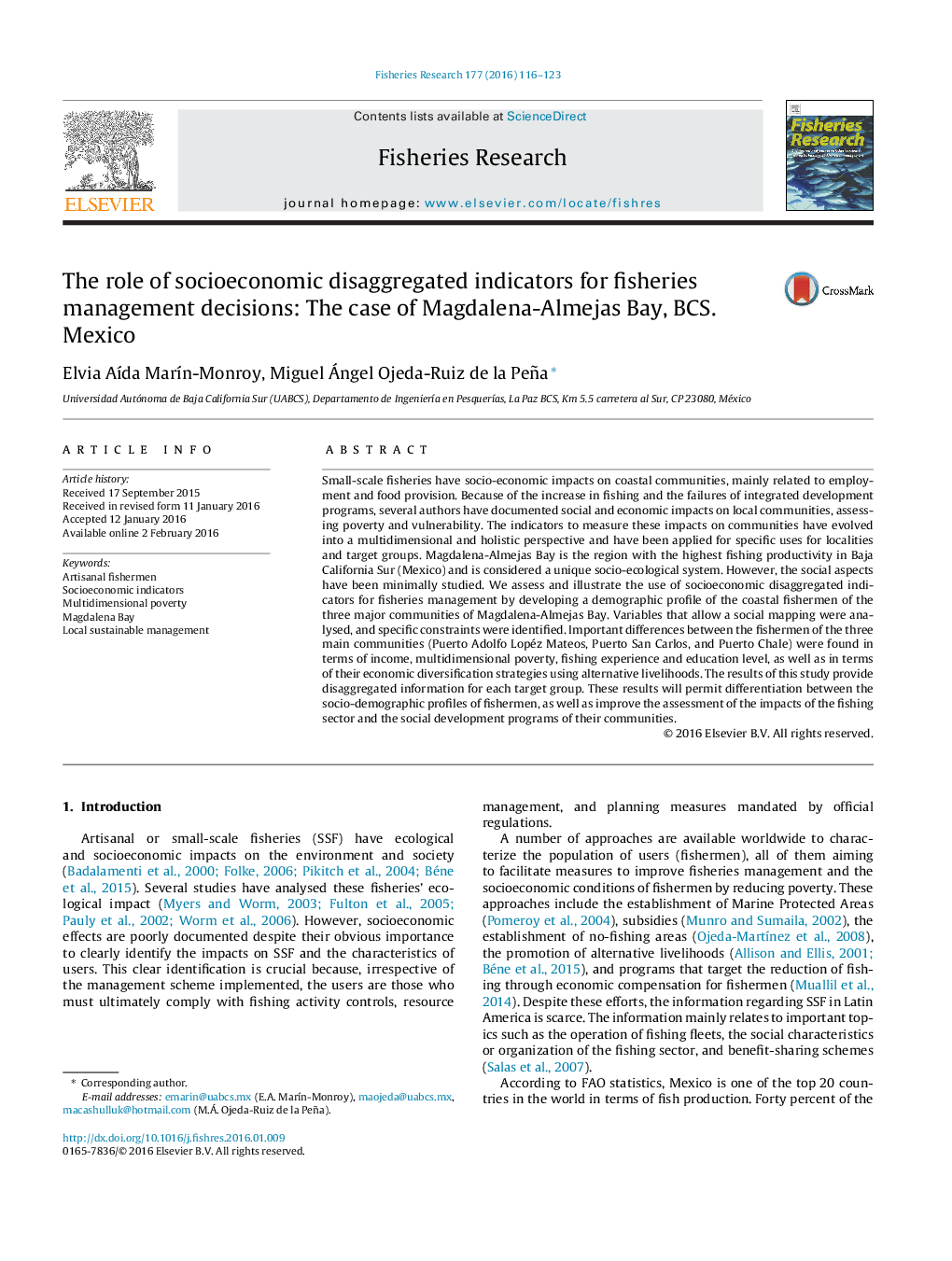| کد مقاله | کد نشریه | سال انتشار | مقاله انگلیسی | نسخه تمام متن |
|---|---|---|---|---|
| 6385544 | 1626792 | 2016 | 8 صفحه PDF | دانلود رایگان |

- Relevant alternative livelihoods for fishers were identified in local economies.
- Differences for incomes among the localities were found.
- Food provision ecosystem services were estimated in Magdalena-Almejas Bay.
- The disaggregated indicators were beneficial in fisheries management development.
- A lower incidence of multidimensional poverty was found than in other fisher communities.
Small-scale fisheries have socio-economic impacts on coastal communities, mainly related to employment and food provision. Because of the increase in fishing and the failures of integrated development programs, several authors have documented social and economic impacts on local communities, assessing poverty and vulnerability. The indicators to measure these impacts on communities have evolved into a multidimensional and holistic perspective and have been applied for specific uses for localities and target groups. Magdalena-Almejas Bay is the region with the highest fishing productivity in Baja California Sur (Mexico) and is considered a unique socio-ecological system. However, the social aspects have been minimally studied. We assess and illustrate the use of socioeconomic disaggregated indicators for fisheries management by developing a demographic profile of the coastal fishermen of the three major communities of Magdalena-Almejas Bay. Variables that allow a social mapping were analysed, and specific constraints were identified. Important differences between the fishermen of the three main communities (Puerto Adolfo Lopéz Mateos, Puerto San Carlos, and Puerto Chale) were found in terms of income, multidimensional poverty, fishing experience and education level, as well as in terms of their economic diversification strategies using alternative livelihoods. The results of this study provide disaggregated information for each target group. These results will permit differentiation between the socio-demographic profiles of fishermen, as well as improve the assessment of the impacts of the fishing sector and the social development programs of their communities.
Journal: Fisheries Research - Volume 177, May 2016, Pages 116-123